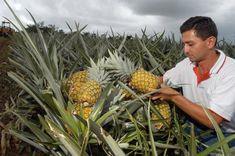
The industry has warned there may be some serious barriers preventing the expansion of Fairtrade fresh produce - despite continued support for the premium phenomenon.
At the Fairtrade Foundation’s annual commercial conference, held in London last week, more than 250 delegates heard how the public continues to remain loyal to Fairtrade during the economic slowdown.
According to TNS, the latest awareness figures for September show that more people than ever - 72 per cent - now recognise the Fairtrade marque, up from 68 per cent in April.
But many in the fresh produce industry believe its success is largely attributable to its growth in the commodities sector, in particular chocolate and coffee.
Adam Wakeley, joint managing director of Organic Farm Foods, told FPJ that Fairtrade is simply growing into its true market share and will soon grind to a halt.
He said: “The main issue is, beyond bananas, there is a limit to offering consistent supply with a niche product that can only be produced outside of Europe. The retailers, therefore, cannot be guaranteed consistent supply and are unwilling to replace another product with an unreliable one.
“The fragmented supply base makes it a flawed system and, as it is niche, it doesn’t always attract the best growers in terms of cultivating eating quality.
“It is currently coming from a very low base and is in the midst of the kind of sales surge organics saw from 2004 to 2006, but when availability increases, its growth will level out.”
Capespan account manager John Banks said it could be a struggle for fresh produce to extend its Fairtrade offer: “Fairtrade brand recognition is being driven by increased packaged grocery and confectionery lines carrying the logo [such as] Cadbury’s chocolate. Fresh produce struggles in a price-driven market, especially during the last 12 months when retailers have been desperate to prove they have a value message.
“Accreditation procedures have become more expensive and more involved, this could be a barrier for some growers - especially where the crop can be sold at a profit as a conventional line.”
TNS market penetration figures show that consumers are spending 5.5 per cent more on Fairtrade products than last year and 95 per cent of people say they would strongly recommend or talk positively about Fairtrade.
Harriet Lamb, executive director of the Fairtrade Foundation, said that despite the step changes companies have made, much more still needs to be done.
She said: “The scale of our ambition matches the scale of the task. For four decades… businesses have been built on collapsing commodity prices that have pushed farmers into poverty. Now, businesses have to grasp this nettle of poverty in their supply chains and create long-term, sustainable change.”
Alistair Smith, international co-ordinator of Banana Link, told FPJ there were possibilities for fruit such as grapefruit, limes and passionfruit to extend into Fairtrade production, but said attitudes needed to be changed to aid the continued growth in Fairtrade bananas.
“Increasing the share of the UK market depends on certifying more plantations, but this needs to be done with due care that the standards are fully adhered to. Some of the big retailers need to make a more serious commitment too.”



